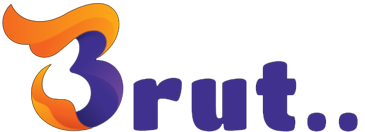Relational database management systems, or RDBMS, store data in relational format. These databases support atomicity, durability, and isolation. As a result, they are highly flexible, allowing users to update and add new data at any time. They also provide an easy way to search for errors and correct inconsistencies. Here are some of the most important characteristics of RDBMS. Listed below are some of the most important benefits of RDBMS.
RDBMS is an effective tool for storing data. Its simplicity makes it ideal for sharing and forming new applications. It is also secure, limiting the risk of data redundancy. It also supports one-off queries and allows multiple users to access the same database. Furthermore, it is highly resistant to physical and logical attacks. These features make it ideal for organizations that need to store and share large amounts of data.
An RDBMS is different from a DBMS because it provides advanced functionality and allows organizations to use data more effectively. Instead of storing data in files, the data is stored in a table that contains rows and columns, which is called a row-by-row database. Unlike a file-based DBMS, a RDBMS is designed for multiple users, which makes it more cost-effective.
Another benefit of RDBMS is that data can be updated and maintained from one central location, allowing database administrators to automate tasks and manage data more efficiently. In addition, users can manage the data from a central location. The RDBMS’s table format makes it easy to understand, and it also ensures that entries are matched when firing queries. This makes it a good choice for businesses with many employees. However, it is important to note that RDBMSs are not suitable for all types of data management.
The main benefit of RDBMS is that it allows data to be shared and used concurrently. It also supports a distributed database by supporting multiple users and databases in different locations. Additionally, RDBMS provides a number of benefits, including data security and fault tolerance. Its performance is scalable and supports a large number of simultaneous users. It also provides a secure and reliable environment for business operations. You don’t need to worry about your business’s data integrity when using RDBMS.
The RDBMS provides a number of advantages to businesses. By providing structured data, it saves time. For instance, when updating student information, a user doesn’t need to manually update every file. For instance, by making a change in the main table, RDBMS will update all of the relevant student files. It also helps in security management, as it enforces policy-based access controls to the data.
A RDBMS uses rows and columns to store data. It can support multiple users and huge amounts of data. It can also be used to maintain information in a database. Unlike the DBMS, an RDBMS can handle large amounts of data, and it can be scaled to meet the needs of many different types of businesses. You can create and maintain data with an RDBMS if you need to, but it’s best to know how it works before you choose one for your needs.
An RDBMS is a database management system that uses SQL to store and retrieve data. It also provides metadata collections and data dictionaries, which can be used to manage data. It is a database that allows for logical connections between tables and can be accessed by various applications. In other words, RDBMSes provide a database that is easily accessible and highly functional. If you want to store information in a relational format, you need an application that can access the data you need.
A database management system enables you to store and manage data in relational database formats. Its innate flexibility allows you to store data in a manner that suits your needs. Its ability to support distributed databases is an important feature, but it is important to remember that the two are very different in other ways. DBMSs are more difficult to manage than RDBMSs and rely on data-intensive databases. By contrast, RDBMSs allow you to share data among multiple users and are better for large companies.




